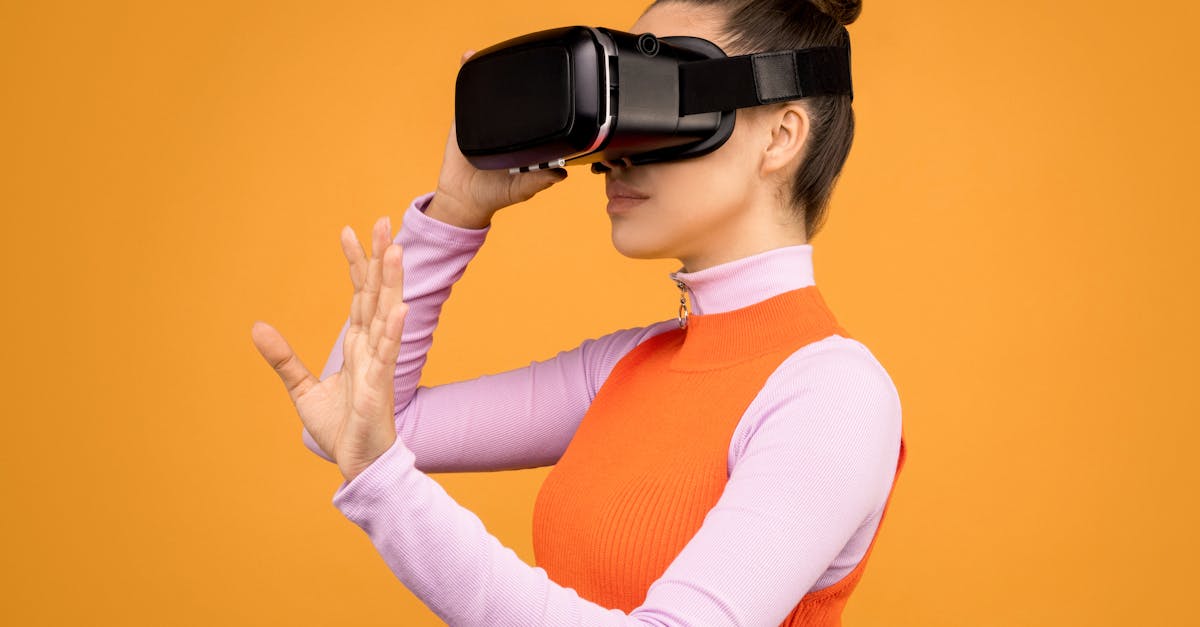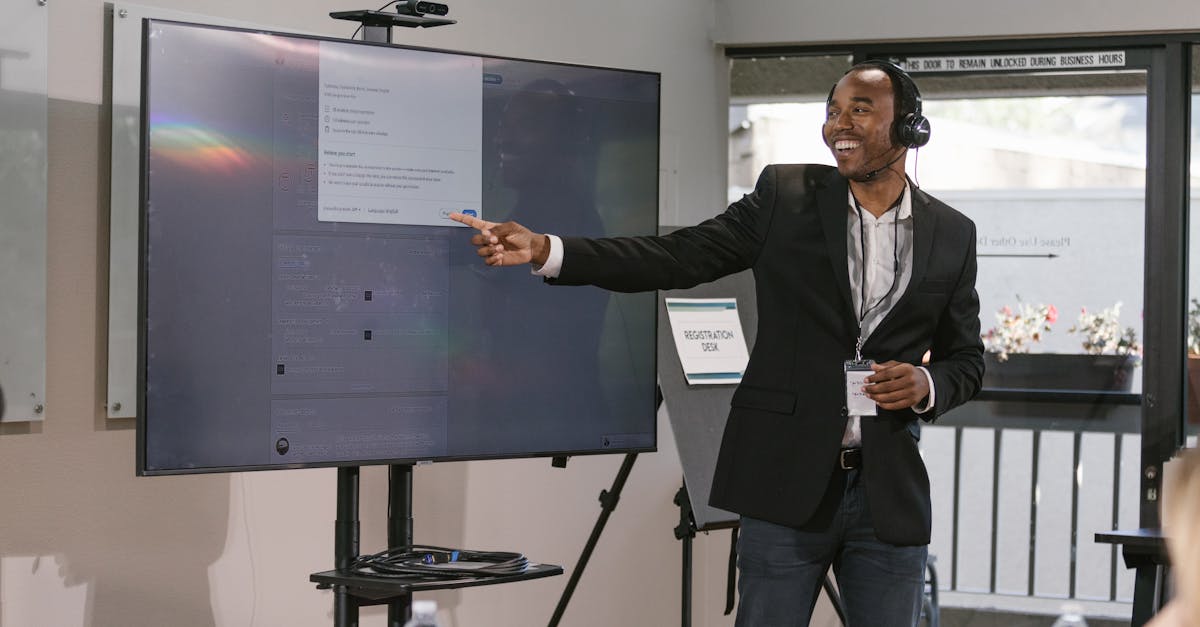Next Wave Of Events And Unique Venues
Introduction
In the ever-evolving landscape of events and venues, there's always a fresh trend around the corner, ready to revolutionize the way we gather and celebrate. With advancements in technology and shifts in consumer preferences, the next wave of events is all about pushing boundaries. From virtual reality experiences to sustainable practices, the industry is buzzing with innovation. Venues are no longer just spaces; they are immersive experiences that captivate audiences. As event planners aim to create memorable experiences, they must adapt to the latest trends to stay relevant. This article dives into the emerging trends shaping the future of events and venues.
Advertisement
Virtual Reality and Augmented Reality Experiences
In an age where digital technology dominates, virtual reality (VR) and augmented reality (AR) are redefining event experiences. Through these technologies, attendees can be transported to different worlds without leaving the venue. Imagine stepping into a historical event or interacting with 3D holographs that enhance presentations. VR and AR offer unique storytelling opportunities, making events more engaging and memorable. For instance, conferences are now utilizing VR for interactive sessions, enabling participants to explore complex data visually. This trend not only transforms the participant's experience but also provides event planners with tools to captivate diverse audiences.
Advertisement
Sustainable and Eco-friendly Venues
With global consciousness of environmental issues growing, the demand for sustainable event practices is more critical than ever. Venues are incorporating green certifications and sustainability-focused amenities. Solar-powered venues, zero-waste strategies, and locally sourced catering are becoming staples. Eco-friendly venues attract a mindful audience, aligning with consumer values. Choosing venues that emphasize sustainability is not just beneficial for the planet; it also enhances the brand image of the events held there. Notably, such practices lead to cost savings, proving that sustainability can be both ethical and economically sound.
Advertisement
Hybrid Events: Bridging Physical and Virtual
The COVID-19 pandemic accelerated the adoption of hybrid events, and the popularity of this model shows no signs of waning. Hybrid events allow for flexible participation, catering to both in-person attendees and virtual participants from around the globe. They provide a unique opportunity for wider audience reach and inclusivity. With sophisticated streaming technologies and on-demand content, hybrid events offer the perfect blend of traditional and digital. Attendees can engage in real time or catch up at their convenience, making events more accessible than ever before. This trend is especially prevalent in conferences and trade shows, which benefit from specialized networking apps.
Advertisement
Unconventional Venues for Unique Experiences
Modern event planners are constantly searching for unique venues that offer a departure from the conventional. Unconventional venues, like museums, historical landmarks, or even industrial spaces, provide an inspired backdrop that elevates the event's ambiance. These locations add character and energy, stimulating creativity and novelty. Whether a wedding hosted in a botanical garden or a corporate dinner aboard a vintage train, such venues underline the trend of tailored experiences. Attendees leave with unforgettable memories, often linked to the unique setting, reinforcing the event's impact.
Advertisement
Personalized Experiences Drive Engagement
Today's audiences crave personalized experiences that cater to their individual preferences and interests. Using data analytics, event organizers can offer tailored agendas, workshops, or even meal preferences before attendees arrive. By leveraging data, organizers enhance the attendee experience while boosting engagement. Personalized elements, like customized breakout sessions or gift bags, promote interaction and leave a lasting impression. This focus on individual experiences ensures that events are participant-centric, resulting in a higher satisfaction rate and making the event feel uniquely special.
Advertisement
Immersive and Interactive Entertainment
Entertainment is a cornerstone of any successful event, and today, the emphasis is on immersive, interactive experiences. Whether it's a live performance integrated with audience participation or an art installation inviting guests to become part of the exhibit, the aim is to engage all senses. This can include interactive light shows, participatory theater, or digital displays that react to movement. Such features provide memorable entertainment and foster connection among guests. Event planners who incorporate these elements see heightened engagement and enthusiasm throughout their events, making entertainment a pivotal component.
Advertisement
The Influence of Data and Analytics
Data analytics play a crucial role in the future of events and venues by allowing organizers to optimize every element of the experience. Analyzing behavioural patterns and feedback, planners gain insights into what works and what doesn't. Real-time data collection during events can help fine-tune ongoing operations, enhancing satisfaction instantly. Post-event analytics assess effectiveness, guiding future strategies. This data-driven approach ensures that every event aspect resonates with attendees, tailoring experiences to their needs. When applied effectively, analytics can transform an event, making it more impactful and responsive to audience expectations.
Advertisement
Technology-driven Networking Opportunities
Networking remains a critical component of events, and technology is facilitating more interactive and meaningful connections. Apps and AI-driven tools enable matchmaking based on interests, facilitating connections that have potential for collaboration or business growth. Digital platforms offer networking lounges, discussion forums, or virtual reality meet-ups that transcend geographical barriers. Enhanced by technology, networking moves beyond exchanging business cards; it becomes a curated experience that aligns with professional goals. As technology advances, networking at events is increasingly personalized and efficient, creating lasting impacts on participants.
Advertisement
Conclusion
As events and venues continue to evolve, it is clear that technology, personalization, and sustainability will lead the way. The integration of virtual and augmented reality makes events more dynamic, while hybrid models ensure wider accessibility and inclusivity. Unconventional venues transform experiences, setting distinctive backdrops that boost memorability. Meanwhile, data analytics empower organizers to create events that resonate deeply with attendees. The next wave of event trends emphasizes creativity and conscience, poised to revolutionize the industry. Event planners and venue operators are tasked with keeping up with these changes, ensuring the experience remains fresh and engaging for all.
Advertisement


